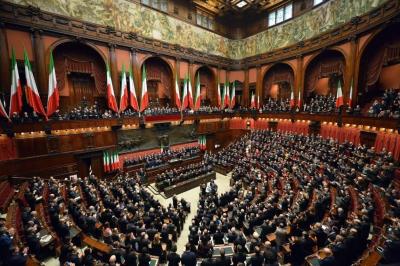Proposed new law to crack down on glorification of mafia

ROME - Until now being a mafia apologist, unlike for terrorism, has never been a crime in Italy. ‘Neomelodico’ songs (songs in the traditional Italian style but with a modern twist) are often heard in Campania and Sicily exalting various members of powerful clans, and during the funeral procession for a member of the Casamonica clan in Rome a few years ago a band played the theme from ‘The Godfather’ while a helicopter scattered rose petals on the coffin.
These are the instances, among many others, that a group of Senators and Deputies from the Parliamentary Antimafia Commission are trying to eliminate with their proposed new law on “aggravating circumstances of mafia incitement or apologism," which which they aim to crack down on the glorification or romanticising of the mafia, especially, as is very common, through popular songs.
Stefania Ascari, the M5S deputy and first signature on the bill, has said, “we certainly don’t want to censor freedom of expression, but put a stop to those conducts and expressions that cross the line and therefore amount to manifestations of mafia encouragement. Freedom of thought cannot in fact be invoked when the expression of thought becomes an offence. The mafia is nourished by these messages and they must be stopped: it is not possible to exalt the Capaci bombing, it is instigation and aims at obtaining social consensus.
“As such the mafia becomes a positive alternative and this must be stopped; the fight against mafia must start with language, otherwise we will never stop it, communication must be more responsible, and there are a few people who shouldn’t be treated as models but criminals.”
The motion will be presented on Thursday afternoon in a press conference in the Chamber of Deputies by, alongside Ascari, Senator Nicola Morra, President of the Bicameral Antimafia Commission and Guido Salvini, an expert magistrate on terrorism and organised crime.
The proposed law states that if an instance of instigation or apology for a crime has a mafia association, the punishment or sentence is increased by half, and it is increased by two thirds if it is conducted public shows, gatherings or broadcasts, or available on online platforms. Artistic or literary or historical reasons cannot be invoked as a defence. If there is an instance of mafia instigation or apology on a social network or radio or TV programme, those responsible for the broadcast must also pay a fine and apologise for what was said.
ol


